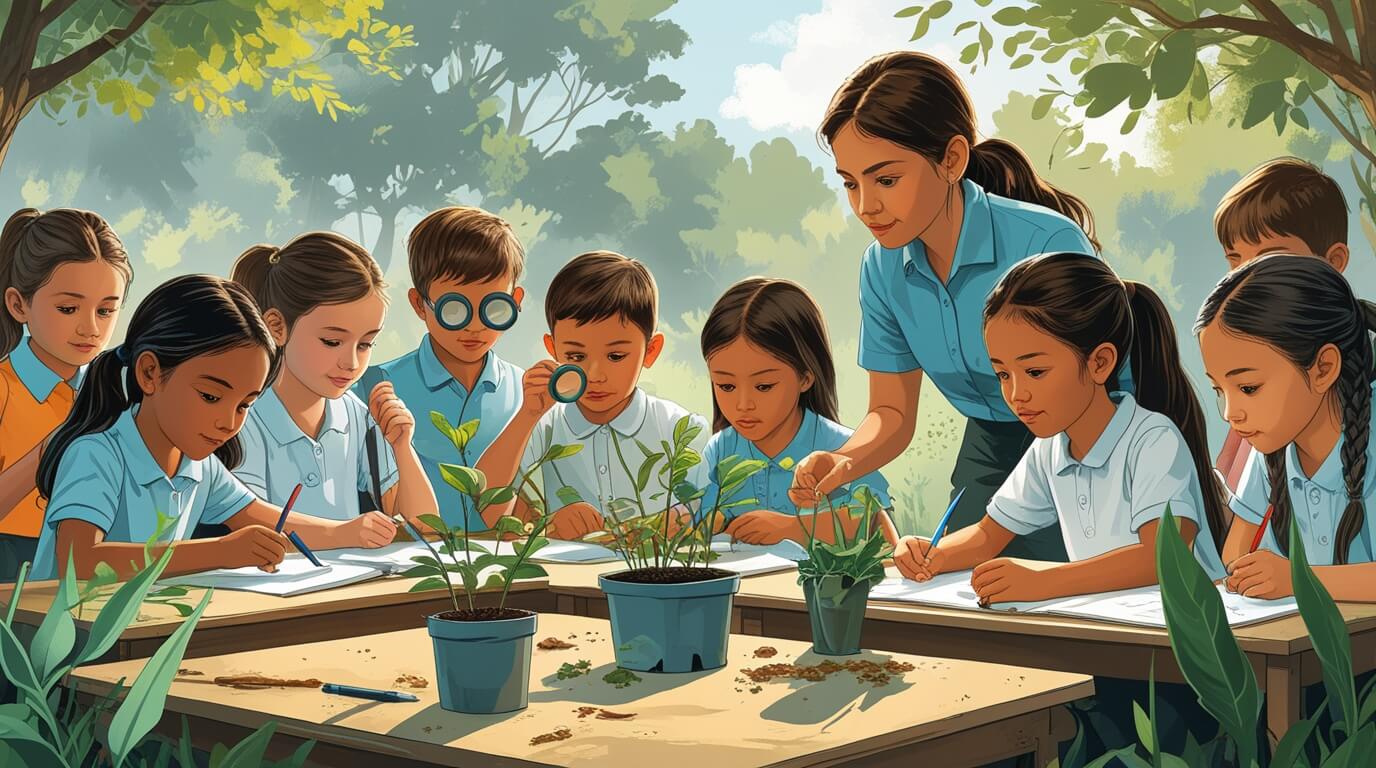September 08, 2025

In today’s increasingly digital and indoor-driven world, many children spend most of their time within four walls—whether in school, at home, or on screens. But growing research and centuries of lived wisdom point to a powerful truth: outdoor education is essential for whole-child development.
From nature walks and school gardens to outdoor science experiments and unstructured play in the woods, learning outside engages the senses, awakens curiosity, and encourages resilience in ways traditional classrooms often can't.
Children learn best when they can see, touch, and explore the concepts being taught. Outdoor education supports experiential learning, where knowledge is gained through hands-on engagement. For instance, instead of reading about soil layers in a textbook, students can dig, observe insects, and analyze plant growth in a school garden or forest.
This kind of immersive learning not only strengthens memory and comprehension but also makes learning feel relevant and exciting.
Related read: Promoting Critical Thinking Skills in Children highlights how active learning fosters deeper understanding.
The outdoors invites movement. Whether kids are climbing, hiking, gardening, building shelters, or simply running through open space, they are engaging their whole bodies—something sitting at a desk cannot offer.
Regular time outside supports:
Beyond physical strength, outdoor time helps regulate sleep and reduces risks of obesity and related conditions.
Resource: CDC – Physical Activity in Children provides guidelines on keeping kids active and healthy.
Time in nature has a calming, restorative effect on the brain. Outdoor education offers children a break from overstimulation and the constant stream of information they face in modern life.
In green spaces, children:
Even just 20 minutes outside can reduce stress hormones and improve mood.
For more on mind-body balance, visit Holistic Approaches to Well-being.
The natural world is full of shared experiences and challenges that encourage collaboration—whether navigating a trail, solving an outdoor puzzle, or building something together.
These activities foster:
Outdoors, children are free from many social pressures found indoors, allowing more authentic relationships to form.
Resource: National Wildlife Federation – Benefits of Outdoor Play explores how nature-based learning builds social intelligence.
When children touch the earth, observe wildlife, and witness seasonal changes, they build a deep, personal connection to the planet. This connection often grows into a lifelong sense of environmental responsibility.
Outdoor education helps children:
Planting a tree or caring for a garden might seem small—but it’s a powerful act of stewardship that plants the seed for future conservation efforts.
Explore more: Understanding Ecosystem Restoration explains how early experiences in nature build lifelong environmental values.
Outdoor learning doesn’t require a forest or expensive equipment—it begins with intention and access. Everyone plays a role:
The more regular and meaningful the exposure, the greater the benefit.
Outdoor education is more than fresh air and exercise—it’s a doorway to deeper learning, stronger health, and more grounded emotional growth. When we give children time and space to learn with nature, we nurture their minds, bodies, and spirits in profoundly lasting ways.
Let’s make the outdoors not a special treat—but a natural part of learning and living.
Stay up to date with the latest tips, expert insights, product reviews, and step-by-step guides to help you grow, create, and succeed—no matter your industry or passion.